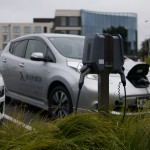Recent research has discovered new security vulnerabilities in some EV charging stations, which could put user data and sensitive information at risk. This is a major concern for EV owners and manufacturers as it could result in fraud, data breaches, and other cyber threats. In order to ensure the safety of these systems, it is important for manufacturers to address these security vulnerabilities and improve the overall security of EV charging stations.
Overview of Security Vulnerabilities in EV Charging Stations
As electric vehicles (EVs) become increasingly popular, the demand for EV charging stations also grows. These charging stations play a crucial role in supporting the growth and sustainability of EVs. However, with the rapid expansion of charging stations, security becomes a crucial concern as well. Security vulnerabilities in EV charging stations can result in significant harm to the environment, property, and individuals.
One of the main security vulnerabilities in EV charging stations is unauthorized access. This includes theft of charging cables, tampering with charging units, and unauthorized access to charging stations. Additionally, unsecured networks in EV charging stations are vulnerable to hacking and cyberattacks. This can result in the theft of sensitive information, such as credit card numbers and personal data, as well as the disruption of the charging station's operations.
Another security vulnerability in EV charging stations is the use of unsecured communications protocols. This makes the charging stations vulnerable to cyberattacks, such as man-in-the-middle attacks, where an attacker intercepts and manipulates data being transmitted between the charging station and the EV. This can result in the theft of sensitive information, as well as the disruption of the charging process.
To address these security vulnerabilities, it is crucial for EV charging station operators and manufacturers to implement security measures, such as the use of secure communications protocols and access controls, to protect the charging stations from unauthorized access and cyberattacks. Furthermore, EV charging station operators should also be vigilant in monitoring their networks and systems for any suspicious activity, and regularly update their security measures to ensure their systems are protected against the latest security threats.
In conclusion, the security of EV charging stations is a critical issue that must be addressed to support the growth and sustainability of EVs. The implementation of security measures and constant monitoring is necessary to ensure the safety and protection of sensitive information, as well as the continued operation of EV charging stations.
Potential Risks of EV Charging Station Vulnerabilities
Electric vehicles (EVs) have been gaining popularity in recent years as a means of reducing carbon emissions and promoting sustainability. With the rise of EVs, the need for charging stations has increased, and so has the potential for security risks. As these charging stations are connected to the internet, they are vulnerable to cyberattacks and data breaches. This can result in the theft of personal information, unauthorized access to charging station data, and the potential for malicious activity.
In addition, EVs and charging stations can be hacked and manipulated to steal power from the grid, resulting in financial losses for both the EV owner and the charging station operator. This can also lead to increased demand on the grid and potential power outages.
Moreover, EVs are becoming increasingly sophisticated and connected, which means they can be vulnerable to cyberattacks that could compromise the vehicle’s software and hardware. This could lead to reduced battery life and the inability to control the vehicle’s movements.
To minimize these risks, it is important to implement robust security measures, such as encryption, firewalls, and regular software updates. Additionally, EV owners should be cautious when using charging stations, checking for signs of tampering or hacking, and reporting any suspicious activity. With these measures in place, we can ensure the continued growth and success of EVs, while minimizing the potential risks of EV charging station vulnerabilities.
Strategies for Securing EV Charging Stations
Securing electric vehicle (EV) charging stations is crucial in ensuring the safety and protection of both the equipment and the users. There are several strategies that can be employed to secure EV charging stations.
Firstly, implementing physical security measures such as surveillance cameras, access controls, and fencing can deter theft and unauthorized access to the station.
Secondly, securing the payment systems used to pay for the charging services can prevent fraud and unauthorized transactions.
Additionally, implementing cybersecurity measures such as firewalls, encryption, and regular software updates can prevent hacking and cyber-attacks. Regular maintenance and inspection of the charging stations can also detect and address any potential security threats. By implementing these strategies, EV charging station owners can provide a secure and reliable charging experience for EV users.
Conclusion: Ensuring EV Charging Station Security
In conclusion, ensuring the security of electric vehicle (EV) charging stations is of utmost importance as it directly impacts the adoption of EVs. This is because if the public perceives charging stations as insecure, they are less likely to use them, and thus less likely to switch to EVs. Hence, implementing security measures in charging stations, such as access controls, video surveillance, and secure payment systems, can help to mitigate the risk of theft, vandalism, and other malicious activities. Additionally, EV charging station operators should also implement cybersecurity measures to protect against cyber attacks and ensure the privacy of customer data. Furthermore, regular maintenance and audits of the charging stations can help to identify any potential security risks and address them promptly. Overall, ensuring the security of EV charging stations is a critical step towards promoting the widespread adoption of EVs and ensuring a sustainable future for our planet.








